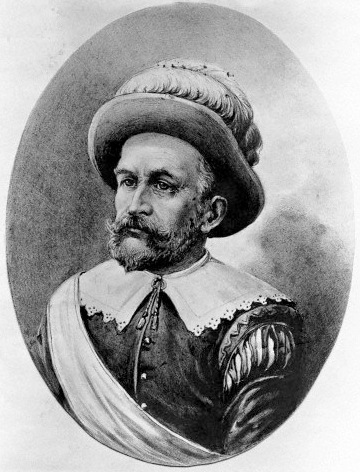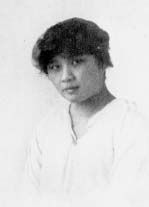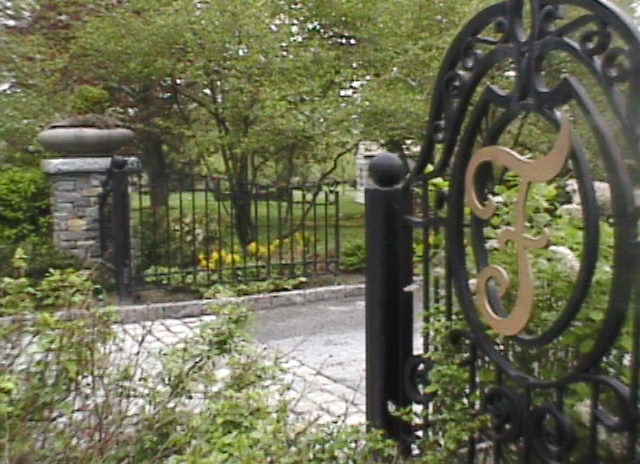|
David Kung Ling-kan
Kung Ling-kan (10 December 1916 – 1 August 1992) was the eldest son of H. H. Kung and Soong Ai-ling. Kung was a 76th generation of Confucius, being given the generation name "ling". Life In 1933, Kung Ling-kan studied at St. John's University in Shanghai. After graduating from college in 1936, he served as the Secret Secretary of the Ministry of Finance and then entered the newly established Central Trust. After the Japanese occupation of Shanghai in 1937, the Central Trust Bureau was withdrawn to Hong Kong, and Kung served as executive director and presided over the business. In 1939, the British Hong Kong authorities seized the secret radio station and expelled it from Hong Kong. Subsequently, Kung Ling-kan went to Harvard University to study in the United States, and married Man Shengli's ex-wife on the way to Manila. In 1943, Soong Mei-ling went to the United States to visit, and Kung Ling-kan served as secretary. After the end of the Anti-Japanese War, Ku returned to Sh ... [...More Info...] [...Related Items...] OR: [Wikipedia] [Google] [Baidu] |
Beiyang Government
The Beiyang government (), officially the Republic of China (), sometimes spelled Peiyang Government, refers to the government of the Republic of China which sat in its capital Peking (Beijing) between 1912 and 1928. It was internationally recognized as the legitimate Chinese government during that time. The name derives from the Beiyang Army, which dominated its politics with the rise of Yuan Shikai, who was a general of the Qing dynasty. After his death, the army split into various warlord factions competing for power, in a period called the Warlord Era. Although the government and the state were nominally under civilian control under a constitution, the Beiyang generals were effectively in charge of it. Nevertheless, the government enjoyed legitimacy abroad along with diplomatic recognition, had access to tax and customs revenue, and could apply for foreign financial loans. Its legitimacy was seriously challenged in 1917, by Sun Yat-sen's Canton-based Kuomintang (KMT) ... [...More Info...] [...Related Items...] OR: [Wikipedia] [Google] [Baidu] |
Communist Party
A communist party is a political party that seeks to realize the socio-economic goals of communism. The term ''communist party'' was popularized by the title of ''The Manifesto of the Communist Party'' (1848) by Karl Marx and Friedrich Engels. As a vanguard party, the communist party guides the political education and development of the working class (proletariat). As a ruling party, the communist party exercises power through the dictatorship of the proletariat. Vladimir Lenin developed the idea of the communist party as the revolutionary vanguard, when the socialist movement in Imperial Russia was divided into ideologically opposed factions, the Bolshevik faction ("of the majority") and the Menshevik faction ("of the minority"). To be politically effective, Lenin proposed a small vanguard party managed with democratic centralism which allowed centralized command of a disciplined cadre of professional revolutionaries. Once a policy was agreed upon, realizing political goals req ... [...More Info...] [...Related Items...] OR: [Wikipedia] [Google] [Baidu] |
Harvard University Alumni
The list of Harvard University people includes notable graduates, professors, and administrators affiliated with Harvard University. For a list of notable non-graduates of Harvard, see notable non-graduate alumni of Harvard. For a list of Harvard's presidents, see President of Harvard University. Eight President of the United States, Presidents of the United States have graduated from Harvard University: John Adams, John Quincy Adams, Rutherford B. Hayes, John F. Kennedy, Franklin Delano Roosevelt, Theodore Roosevelt, George W. Bush, and Barack Obama. Bush graduated from Harvard Business School, Hayes and Obama from Harvard Law School, and the others from Harvard College. Over 150 Nobel Prize winners have been associated with the university as alumni, researchers or faculty. Nobel laureates Pulitzer Prize winners ... [...More Info...] [...Related Items...] OR: [Wikipedia] [Google] [Baidu] |
1992 Deaths
Year 199 ( CXCIX) was a common year starting on Monday (link will display the full calendar) of the Julian calendar. At the time, it was sometimes known as year 952 ''Ab urbe condita''. The denomination 199 for this year has been used since the early medieval period, when the Anno Domini calendar era became the prevalent method in Europe for naming years. Events By place Roman Empire * Mesopotamia is partitioned into two Roman provinces divided by the Euphrates, Mesopotamia and Osroene. * Emperor Septimius Severus lays siege to the city-state Hatra in Central-Mesopotamia, but fails to capture the city despite breaching the walls. * Two new legions, I Parthica and III Parthica, are formed as a permanent garrison. China * Battle of Yijing: Chinese warlord Yuan Shao defeats Gongsun Zan. Korea * Geodeung succeeds Suro of Geumgwan Gaya, as king of the Korean kingdom of Gaya (traditional date). By topic Religion * Pope Zephyrinus succeeds Pope Victor I, as th ... [...More Info...] [...Related Items...] OR: [Wikipedia] [Google] [Baidu] |
1916 Births
Events Below, the events of the First World War have the "WWI" prefix. January * January 1 – The British Empire, British Royal Army Medical Corps carries out the first successful blood transfusion, using blood that had been stored and cooled. * January 9 – WWI: Gallipoli Campaign: The last British troops are evacuated from Gallipoli, as the Ottoman Empire prevails over a joint British and French operation to capture Constantinople. * January 10 – WWI: Erzurum Offensive: Russia defeats the Ottoman Empire. * January 12 – The Gilbert and Ellice Islands Colony, part of the British Empire, is established in present-day Tuvalu and Kiribati. * January 13 – WWI: Battle of Wadi (1916), Battle of Wadi: Ottoman Empire forces defeat the British, during the Mesopotamian campaign in modern-day Iraq. * January 29 – WWI: Paris is bombed by German Empire, German zeppelins. * January 31 – WWI: An attack is planned on Verdun, France. February * ... [...More Info...] [...Related Items...] OR: [Wikipedia] [Google] [Baidu] |
Manhattan
Manhattan (), known regionally as the City, is the most densely populated and geographically smallest of the five boroughs of New York City. The borough is also coextensive with New York County, one of the original counties of the U.S. state of New York. Located near the southern tip of New York State, Manhattan is based in the Eastern Time Zone and constitutes both the geographical and demographic center of the Northeast megalopolis and the urban core of the New York metropolitan area, the largest metropolitan area in the world by urban landmass. Over 58 million people live within 250 miles of Manhattan, which serves as New York City’s economic and administrative center, cultural identifier, and the city’s historical birthplace. Manhattan has been described as the cultural, financial, media, and entertainment capital of the world, is considered a safe haven for global real estate investors, and hosts the United Nations headquarters. New York City is the headquarters of ... [...More Info...] [...Related Items...] OR: [Wikipedia] [Google] [Baidu] |
Chiang Ching-kuo
Chiang Ching-kuo (27 April 1910 – 13 January 1988) was a politician of the Republic of China after its retreat to Taiwan. The eldest and only biological son of former president Chiang Kai-shek, he held numerous posts in the government of the Republic of China and ended martial law in 1987. He served as Premier of the Republic of China between 1972 and 1978, and was President of the Republic of China from 1978 until his death in 1988. Born in Zhejiang, Chiang-kuo was sent as a teenager to study in the Soviet Union during the First United Front in 1925, when his father's Nationalist Party and the Chinese Communist Party were in alliance. He attended university there and spoke Russian fluently, but when the Chinese Nationalists violently broke with the Communists, Stalin sent him to work in a steel factory in the Ural Mountains. There, Chiang met and married Faina Vakhreva. With war between China and Japan imminent in 1937, Stalin sent the couple to China. During the ... [...More Info...] [...Related Items...] OR: [Wikipedia] [Google] [Baidu] |
Chinese Gold Yuan
The Chinese gold yuan (also known as golden round, golden yuan, among others) was a defunct legal tender currency of China between August 1948 and 1949. It was a method used by the Republic of China government to accumulate gold from its citizens in preparation to relocate to Taiwan. It circulated in the country under the effective control of the Government of the Republic of China known as Taiwan Province, R.O.C., which issued paper money on August 19, 1948. This currency was notorious for vicious inflation due to inadequate issuance preparation and failure to strictly enforce issuance limits. In the early days of the issuance of the Golden yuan, the government used executive actions to force the public to exchange gold, foreign currency for the new currency. The legal exchange rate was 0.22217 grams of gold per gold yuan but it could not be honored. The sharply depreciating Fabi currency was at the rate of one golden yuan of the yen to Fabi $3 million, and this rate was used for ... [...More Info...] [...Related Items...] OR: [Wikipedia] [Google] [Baidu] |
Soong Mei-ling
Soong Mei-ling (also spelled Soong May-ling, ; March 5, 1898 – October 23, 2003), also known as Madame Chiang Kai-shek or Madame Chiang, was a Chinese political figure who was First Lady of the Republic of China, the wife of Generalissimo and President Chiang Kai-shek. Soong played a prominent role in the politics of the Republic of China and was the sister-in-law of Sun Yat-sen, the founder and the leader of the Republic of China. She was active in the civic life of her country and held many honorary and active positions, including chairwoman of Fu Jen Catholic University. During World War 2, she rallied against the Japanese; and in 1943 conducted an eight-month speaking tour of the United States of America to gain support. Early life She was born in her family home, a traditional house called Neishidi (內史第), in Pudong, Shanghai. She was born on March 5, 1898, though some biographies give the year as 1897, since Chinese tradition considers one to be a year old at birt ... [...More Info...] [...Related Items...] OR: [Wikipedia] [Google] [Baidu] |
Ferncliff Cemetery
Ferncliff Cemetery and Mausoleum is located at 280 Secor Road in the hamlet of Hartsdale, town of Greenburgh, Westchester County, New York, United States, about north of Midtown Manhattan. It was founded in 1902, and is non-sectarian. Ferncliff has three community mausoleums including columbariums, a crematory, a small chapel, and a main office located in the rear of the main building. Mausoleums Ferncliff Cemetery has three community mausoleums that offer what ''The New York Times'' has described as "lavish burial spaces". This cemetery includes columbariums. As of 2001, a standard crypt space in the mausoleums was priced at $15,000. The highest-priced spaces were private burial rooms with bronze gates, crystal chandeliers, and stained-glass windows, priced at $280,000. Ferncliff The Ferncliff Mausoleum, aka "The Cathedral of Memories", is the cemetery's oldest mausoleum, constructed in 1928. It has classic architecture, but the corridors are dark without glass panes to admit ... [...More Info...] [...Related Items...] OR: [Wikipedia] [Google] [Baidu] |
Confucius
Confucius ( ; zh, s=, p=Kǒng Fūzǐ, "Master Kǒng"; or commonly zh, s=, p=Kǒngzǐ, labels=no; – ) was a Chinese philosopher and politician of the Spring and Autumn period who is traditionally considered the paragon of Chinese sages. Confucius's teachings and philosophy underpin East Asian culture and society, remaining influential across China and East Asia to this day. Confucius considered himself a transmitter for the values of earlier periods which he claimed had been abandoned in his time. His philosophical teachings, called Confucianism, emphasized personal and governmental morality, correctness of social relationships, justice, kindness, and sincerity. His followers competed with many other schools during the Hundred Schools of Thought era, only to be suppressed in favor of the Legalists during the Qin dynasty. After the collapse of Qin and the victory of Han over Chu, Confucius's thoughts received official sanction in the new government. During the Tan ... [...More Info...] [...Related Items...] OR: [Wikipedia] [Google] [Baidu] |
Soong Ai-ling
Soong Ai-ling (), legally Soong E-ling or Eling Soong (July 15, 1889 – October 18, 1973) was a Chinese businesswoman, the eldest of the Soong sisters and the wife of H. H. Kung (Kung Hsiang-Hsi), who was the richest man in the early 20th century Republic of China. The first character of her given name is written as 靄 (same pronunciation) in some texts. Her Christian name was Nancy. Life Born in Shanghai, she attended McTyeire School beginning at age 5. Soong Ai-ling arrived in the United States at the Port of San Francisco, California on June 30, 1904, aboard the ''SS Korea'' at the age of 14 to begin her education at Wesleyan College in Macon, Georgia. She returned to China in 1909 after her graduation. In late 1911, she worked as a secretary for Sun Yat-sen, a job later taken by her sister, Soong Ching-ling, who later became Madame Sun Yat-sen. Soong Ai-ling met her future husband, Kung Hsiang Hsi, in 1913, and they married the following year in Yokohama. After marrying, ... [...More Info...] [...Related Items...] OR: [Wikipedia] [Google] [Baidu] |



